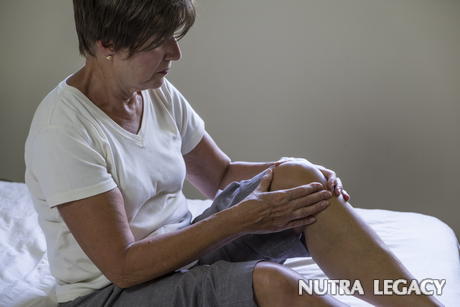Chronic Wound Care

- Wound healing is something not to be considered lightly because if a wound does not heal properly, a serious infection can result
- How you treat open wounds is probably the most important in the wound process
- Make sure that you treat wounds with the utmost care
Treating a wound properly helps repair the breaks that occur in the skin or the mucous membrane. Cuts, burns, scrapes, punctures and lacerations all need proper treatment so healing can occur without complication. Complications usually refer to severe wounds with extensive blood loss, affected blood vessels, nerves, tendons or infections. If any foreign particles are left in the wound, the risk of complication increases.
Some wounds tend to last longer or become chronic due to some illness or surgery. These wounds heal very slowly or not at all. Chronic wounds are difficult to treat and require special treatment.
Chronic wounds are very common in elderly patients and bedridden people. They are characterized by the loss of underlying tissues. Conventional healing treatments are not so effective on chronic wounds. The edges of a chronic wound are not well approximated and they are accompanied by tissue deficit. The medical term for a chronic wound is “pressure ulcer”.
There are different types of chronic wounds. They are listed below:
• Diabetic wounds: Diabetes is a severe disease and patients suffering from this disease might often experience wounds or cuts that don’t heal over time. Diabetic patients often suffer from severe complications like foot lesions. In some cases, amputation of the foot may be in order.
• Bed Sores (Pressure sores / Pressure ulcers): Sustained pressure often causes damage to the skin and tissue. This happens due to prolonged pressure on certain parts of the body like the buttocks, heels and hips. Proper care is important as these sores are prone to infection.
• Surgical wounds: Surgical wounds are also very common. Prior to a surgical procedure, patient might develop severe complications like bleeding, blood clotting, bruising, tissue necrosis, infection, or dehiscence (opening of the wound). These wounds are either left open or may be closed with sutures, stitches, healing strips or staples.
Chronic wounds require treatment and you must immediately contact a doctor. If you notice any signs of chronic wounds, take immediate action. The signs of chronic wounds include:
• The presence of foreign particles in the wound.
• A wound that does not heal or heals very slowly.
• The occurrence of infection. It can be characterized by swelling, redness, tenderness, warmth, increased pain and pus formation. An infection can also lead to a rise in body temperature.
• The wounded area seems numb and frozen.
Chronic wounds, if ignored, can lead to severe compilations like:
• Infection: Infections can be fatal and might lead to complications like cellulites, osteomyelitis (bone inflammation), septic arthritis (bacterial infection effecting the joints), and sepsis (life threatening infection in blood).
• Endocarditis: Inflammation caused in the lining of heart.
• Heterotopic bone formation: The abnormal growth of bones in unusual parts of the body.
• Maggot infestation: Self-explanatory and disgusting.
• Meningitis: A typical problem with the membrane that covers the brain and the spinal cord that causes an inflammation.
• Amyloidosis: This is a rare disease caused by amyloid accumulation. Amyloid is a form of starch and protein that accumulates in the tissues and organs thus impairing their functions.
Wounds can be treated with medicines and other treatments. Sometimes, nutritional factors can also be responsible for slow recovery. Some medicines might also slow down the healing process. A lack of proteins, vitamins and zinc contributes to a slower recovery process.
B-100 Complex can also help in the wound healing process, not to mention its other great abilities such as that it stabilizes and increases metabolic rates, promotes healthy skin and muscle tone, enhances immune and nervous system functioning, and promotes cell growth and division.
The information supplied in this article is not to be considered as medical advice and is for educational purposes only.
2 Responses to “Chronic Wound Care” | ||||||||||||||





 30 Sep 2008
30 Sep 2008
Very useful information . Thanks for sharing. Many people have similar situations in their lives.July 8th, 2009 at 10:03 am
No matter what you do when it comes to treating chronic wounds, always make sure your follow the advice of your primary care physician.January 25th, 2009 at 10:37 pm